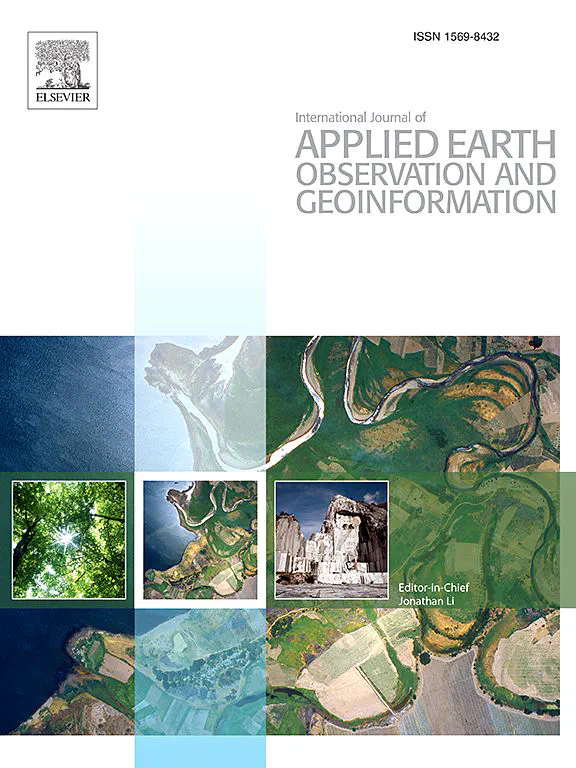Call for papers for a special issue (until June 2024)
We are co-organising a collection on Sustainable geospatial analytics and geoinformatics with repeatable, reproducible, and expandable (RRE) framework and design.

We announce a new special issue in the International Journal of Applied Earth Observation and Geoinformation on Sustainable geospatial analytics and geoinformatics with repeatable, reproducible, and expandable (RRE) framework and design. We welcome submissions until June 2024.
This is not the first time we are working on a special issue. Four years ago, we organised one on 3D GIS and BIM in Transactions of GIS.
The guest editors of this special issue are Siqin (Sisi) Wang (University of Queensland, RMIT University, University of Tokyo), Xiao Huang (University of Arkansas), Filip Biljecki (NUS), Francisco Rowe (University of Liverpool), and Veruska Muccione (University of Zurich).
The call for papers is available below and at this link.
The journal is an open access journal that has a relatively large scope, attracting a variety of high quality papers from many research groups around the world. We also published a couple of papers in this journal (e.g. here and here) in the past year, and we can recommend it.
For the list of the ongoing special special issues in the journal, click here.
Call for papers — Sustainable geospatial analytics and geoinformatics with repeatable, reproducible, and expandable (RRE) framework and design
In recent decades, GIScience has undergone significant development, leading us toward an era that emphasizes sustainability, sharing, repeatability, and reproducibility. Sustainable spatiotemporal data analysis is a critical aspect of understanding social and environmental processes and predicting their long-term outcomes. To achieve this, frameworks and designs that are repeatable, reproducible, and easily re-employed by a wide range of end-users, policymakers, and individuals without technical expertise are required. A sustainable approach to spatiotemporal data analysis involves considering the persistence and sharing of data collection, management, methodologies and workflows. This requires proper training and practice in data collection, including minimizing data errors and biases, using open data standards, and appropriately documenting the data and methods. Additionally, a repeatable and reproducible framework for data analysis ensures that results can be validated and replicated, thus increasing confidence in the findings. In essence, sustainable spatiotemporal data analytics promotes the cutting-edge frontier of human-centered open science, thereby advancing the field and leading us toward a more sustainable and equitable future.
As such, this special issue aims to promote the development of repeatable, reproducible, and expandable (RRE) frameworks, methodologies, and technologies (e.g., use of KNIME workflow) for spatial data analysis, spatial data sharing, and applied research in the fields of spatiotemporal innovation. It welcomes papers with the following topics:
- Review articles on the development of RRE frameworks, methodologies, and technologies
- Technical development of new RRE frameworks and methodologies centered around spatiotemporal data
- Empirical studies using spatiotemporal data as well as RRE frameworks and methodologies in the cross-subdomain of geography and sustainability science, including but not limited to:
- sustainable society
- urban sustainability
- environmental sustainability
- ecological sustainability
All submissions are required to have sharable data, codes, framework and methods, expected to be designated as a RRE workflow e.g., using KNIME, Model Builder, or other workflow software.
Submission deadline: June 9, 2024
Keywords:
Geospatial analytics, GIScience, Geoinformatics, open science, sharable workflow, repeatability, reproducibility, spatiotemporal innovation
Why publish in this Special Issue?
- Special Issue articles are published together on ScienceDirect, making it incredibly easy for other researchers to discover your work.
- Special content articles are downloaded on ScienceDirect twice as often within the first 24 months than articles published in regular issues.
- Special content articles attract 20% more citations in the first 24 months than articles published in regular issues.
- All articles in this special issue will be reviewed by no fewer than two independent experts to ensure the quality, originality and novelty of the work published.